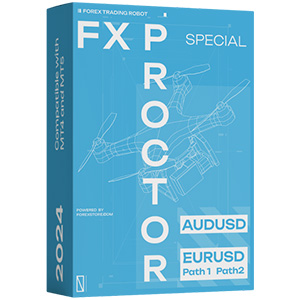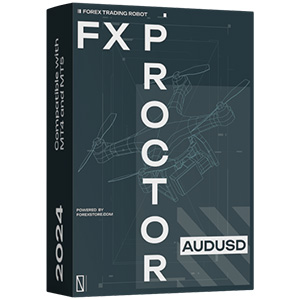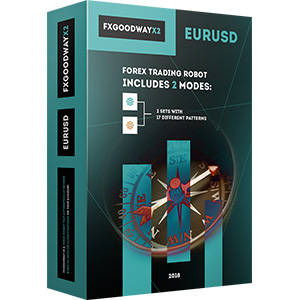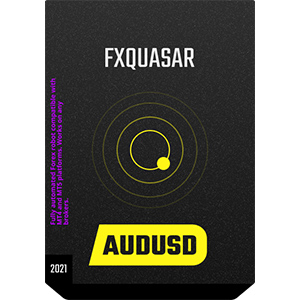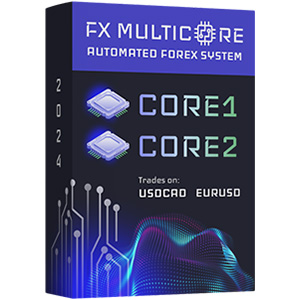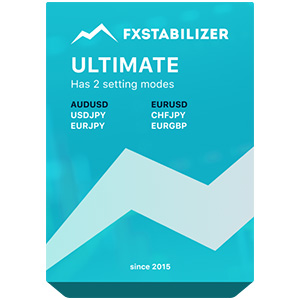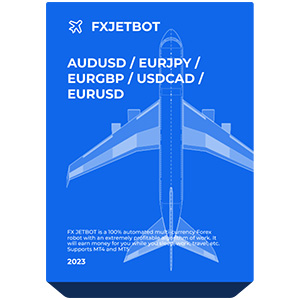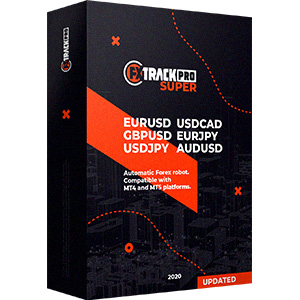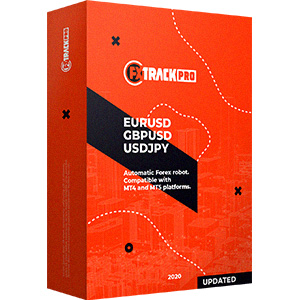
Esistono un gran numero di truffe nel trading Forex di cui potresti aver sentito parlare e molte altre di cui non sai nulla. In questo articolo imparerai come identificare e evitare di essere truffato nel mondo del trading Forex.
Introduzione
Molte persone che sono potenzialmente interessate al trading e agli investimenti nei mercati finanziari sono affascinate dall'errore che è impossibile ottenere un reddito stabile su Forex, che i broker semplicemente non permettono ai loro trader di guadagnare denaro e si prendono tutto il profitto dai clienti fiduciosi. Questo stereotipo è costantemente rafforzato dalle lamentele dei "magnati finanziari truffati" che, appena entrati nel mercato, hanno iniziato a fare trading immediatamente su un conto reale, senza alcun sistema, e hanno perso in sicurezza i loro depositi. Naturalmente, il 99% di tali "trader" incolpa il broker per tutto, e il mercato Forex sembra essere una gigantesca truffa per loro. Tuttavia, nella pratica, le cose non sono così semplici.
È redditizio per i broker Forex permettere ai trader di ottenere profitto?
In realtà, tutto dipende dal tipo di broker. Se si guarda al mercato in modo semplificato, allora tutti i broker Forex possono essere divisi in due categorie: broker ECN (STP) che mostrano le transazioni dei clienti sul mercato interbancario, e "bucket shops" in cui il trading è condotto internamente, e il trader nel miglior scenario conclude transazioni con altri clienti e nel peggiore – fa trading contro il centro di negoziazione (DC) stesso.
Tutto è chiaro con i broker ECN – è vantaggioso per loro far sì che il trader concluda il maggior numero possibile di transazioni al fine di guadagnare commissioni, e il trader che fonde il deposito non sarà in grado di concludere transazioni. Pertanto, è vantaggioso per loro far sì che il cliente faccia trading almeno non in perdita.
Con le agenzie di scommesse, in realtà, tutto non è così male: ci sono molti broker che lavorano sul mercato da 10-20 anni e non sono stati coinvolti in truffe evidenti e sversamenti dei conti dei clienti. Quando un trader alle prime armi commette costantemente errori da solo, a tali broker non serve nemmeno fregare il cliente, perderà denaro da solo, effettuando transazioni non redditizie. E sul Forex, la maggior parte, di regola, sbaglia. Ma l'atteggiamento delle agenzie di scommesse verso i trader che operano in modo redditizio è un po' più complicato. Le grandi aziende possono benissimo fare finta di non vedere i guadagni stabili, ma modesti, di un cliente specifico e consentirgli di prelevare i suoi soldi. Alla fine, la reputazione è più importante. Specialmente perché è possibile fare una buona pubblicità su questo e attirare centinaia di nuovi arrivati, che alla fine perderanno molto più denaro.
Ma se l'azienda capisce che uno dei suoi clienti non solo opera in modo stabile e redditizio, ma aumenta costantemente i volumi, prendendo sempre di più dalla tasca del broker, non permetterà che ciò accada così facilmente. Inoltre, nella maggior parte dei casi, il broker priva il cliente di tutti questi fondi e blocca l'accesso all'account, senza violare formalmente la legge. Torneremo alla questione di come il broker riesca in questo, ma nel frattempo, dovresti prestare attenzione ai modi più popolari per ottenere guadagni sul Forex.
Da dove proviene un profitto stabile sul mercato Forex?
Prima di tutto, i trader Forex possono essere divisi in due categorie:
Trading manuale sul Forex
Il primo è costituito da broker esperti e trader di valute, che naturalmente hanno una strategia (o meglio, un insieme di regole specifiche), ma le decisioni vengono prese in base alla propria esperienza e talvolta anche per intuito. Tali specialisti sono lontani dall'ottenere un profitto ogni mese e possono fallire per lungo tempo, ma l'esperienza e la professionalità permettono loro di uscire continuamente dal baratro, di compensare tutte le perdite e di tornare in sella.
Di solito, tali trader operano con volumi elevati, quindi di solito si rivolgono a broker ECN senza rischiare di contattare altri tipi di broker. Di conseguenza, il broker riceve stabilmente la sua commissione e il trader è sicuro di non essere privato del profitto onestamente guadagnato.
Trading Forex automatizzato
La seconda categoria di trader Forex che ottiene un profitto è costituita da coloro che utilizzano qualsiasi tipo di sistemi di trading automatizzati o fanno trading algoritmico. In questo caso, il trader non ha bisogno di essere un broker esperto o un trader di valute. Devono solo capire i concetti di base del mercato e saper controllare le proprie emozioni. Parte di questi trader non ha esperienza di scambio, ma sono esperti in programmazione e calcolo delle probabilità. Sulla base dell'analisi di mercato, tali specialisti possono scrivere un robot Forex che porterà un profitto stabile in determinate condizioni. Tuttavia, il trading con sistemi automatizzati ha un problema: richiedono l'esecuzione istantanea degli ordini. Un broker ECN non può fornire tale condizione perché consente solo a un trader di concludere un affare quando il sistema trova un controparte per lui. E in situazioni di forza maggiore (ad esempio, durante il trading sulle notizie), ci sono alcuni ritardi nell'esecuzione degli ordini, così come slippage quando una transazione viene aperta a un prezzo un paio di dozzine di punti più alto/più basso rispetto a quanto pianificato.
È per questo motivo che la maggior parte dei trader algoritmici deve richiedere i servizi dei cosiddetti "bucket shops", poiché solo loro possono fornire l'esecuzione istantanea degli ordini. E il broker, notando un cliente così scomodo, inizia a cercare modi per fonderlo con un rischio minimo per la sua reputazione.
Come i broker ritirano legalmente i soldi dai clienti di successo?
È importante capire che un broker di bucket shop, specialmente uno che opera sul mercato da diversi anni, calcola preventivamente la probabilità dell'apparizione di trader che, in un modo o nell'altro, potrebbero essere in grado di raggiungere un reddito costante e quindi il broker adotta determinate misure per evitarlo. Il modo più semplice per proteggersi dai clienti troppo di successo è inserire alcuni punti piccoli e apparentemente innocui nell'accordo con il cliente. Questo potrebbe essere un limite di tempo per la transazione (che è critico per gli scalper), un limite massimo di profitto nella transazione o l'importo massimo di prelievo di denaro. Se un trader cattura anche accidentalmente più profitto di quanto previsto nell'accordo, può essere formalmente riconosciuto come un violatore e gli può essere rifiutato il servizio continuando a congelare il conto (il che significa prendere i soldi rimasti sul deposito).
Ci sono soluzioni ancora più semplici - inserire nel contratto un punto che preveda il diritto del broker di rifiutare di fornire ulteriori servizi al cliente in qualsiasi momento senza fornire motivazioni. Per quanto possa sembrare strano, un trader che accetta tali condizioni concede al broker il diritto di ritirare semplicemente il suo deposito, senza permettere che una singola transazione venga completata.
Naturalmente, c'è anche un fattore di reputazione, e nella maggior parte dei casi è persino più serio della legittimità del broker (per lo più, hanno ancora una registrazione offshore). Una grande azienda non ruberà insolentemente i soldi dei clienti - dopotutto, ciò minaccia perdite molto maggiori a causa del fatto che i nuovi arrivati preferiranno i concorrenti con una migliore reputazione.
Ecco perché, prima di scegliere un broker, è necessario non solo leggere attentamente (punto per punto) l'accordo con il cliente con tutte le aggiunte, ma anche studiare le recensioni su questa azienda su Internet. E spesso vedere la vera situazione non è facile perché, da un lato, un gran numero di recensioni pagate dal DC stesso, e dall'altro, dalla pubblicità nera dei concorrenti e semplicemente dai perdenti offesi che facilmente denigrano un'azienda onesta, solo per evitare di affrontare i propri errori.
Alcuni dettagli del lavoro con i broker Forex
Oltre alle aziende ECN e ai cosiddetti broker di bucket shop, ci sono broker che lavorano su base ibrida. Ciò significa che visualizzano grandi transazioni sul mercato interbancario, e gli ordini eseguiti per lotti frazionari vengono scambiati all'interno dell'azienda. I broker fanno ciò per non rifiutare di fornire servizi ai piccoli clienti, che in seguito possono diventare seri investitori. Tuttavia, non è consigliabile ritirare le transazioni al volume interbancario di 0,01 lotti, pertanto, il broker le esegue in modo indipendente.
Nella pratica, ciò comporta le seguenti situazioni: le transazioni dei clienti vengono eseguite istantaneamente e al prezzo dichiarato, mentre sta facendo trading in un piccolo lotto. Se un trader conduce un trading sistematico e il suo deposito cresce, inizia ad aumentare i volumi. Non appena il volume delle transazioni raggiunge 1 lotto, gli ordini vengono visualizzati sul mercato interbancario, compaiono ritardi nell'esecuzione e slippage. Il trader inizia a pensare che il broker metta intenzionalmente un bastone tra le ruote, e in realtà, porta solo il trader al reale mercato interbancario.
Tuttavia, indipendentemente dalla motivazione dell'azienda, tale scenario è inaccettabile per un trader sistemico. Pertanto, prima di iniziare una collaborazione con il broker, è necessario chiarire tutti i dettagli dell'esecuzione. Se un trader decide di collaborare con un'azienda del genere, è necessario limitare il volume delle transazioni.
Come evitare di diventare vittima di truffatori?
Prima di firmare un accordo di collaborazione e aprire un conto con un'azienda, è necessario studiare la storia del lavoro, le recensioni su siti/forums tematici, per accertarsi di avere licenze e documenti. Per fare trading su Forex o opzioni binarie, scegli broker regolamentati: l'azienda deve essere registrata, avere una licenza per svolgere un'attività finanziaria sul mercato (e non un permesso per il gioco d'azzardo). Solo in questo caso sarà possibile presentare un reclamo in caso di truffa. L'azienda deve avere tutti i diritti e le licenze in conformità con la legge applicabile. È anche utile notare le licenze più autorevoli:
- NFA (National Futures Association);
- CFTC (Commodity Futures Trading Committee);
- FSA della Gran Bretagna (The Financial Services Authority);
- CySEC (Cyprus Securities and Exchange Commission);
- Swiss FINMA (Swiss Financial Industry Protection Corporation);
- USA – FINRA (Financial Industry Regulatory Authority);
- SIPC (Securities Investor Protection Corporation) ecc.
Per evitare truffe, intendendo collaborare con un broker è necessario controllare tutta la documentazione. Avendo trovato una licenza o un certificato, è consigliabile verificare le autorità che li hanno rilasciati, poiché le aziende spesso pubblicano documenti di organizzazioni inesistenti con nomi importanti sui siti web. Per non cadere in una società di intermediazione disonesta, è meglio scegliere un broker che lavori nel paese di residenza del trader (è possibile citarli in giudizio) o una società straniera ben nota e affidabile che tiene alla propria reputazione. Assicurati di leggere recensioni e commenti, studiare le caratteristiche del lavoro sul mercato per capire come vengono effettuate le truffe su Forex.
La presenza di commissioni minime e di uno spread basso ma le promesse di "montagne d'oro" e bonus da una società il cui sito web è stato creato su un motore gratuito (come WordPress) dovrebbero almeno destare sospetti. Per poter chiedere aiuto alle autorità di difesa, il trader deve anche registrare le proprie attività, compilare attentamente ed eseguire tutti i documenti, pagare le tasse. Una varietà di classifiche può aiutarti a scegliere un broker affidabile, dove migliaia di trader votano e le aziende veramente migliori vengono prime.
Nonostante la possibilità di pubblicare recensioni pagate, ci sono sempre più clienti reali e le loro opinioni, di regola, sono completamente vere. Pertanto, è meglio collaborare con broker seri che offrono un eccellente supporto e che lavorano nel mercato da molto tempo, anche se le loro commissioni e offerte non sono così attraenti come quelle di aziende sconosciute. Alla fine, tutto questo si ripagherà con la possibilità di lavorare in modo onesto ed efficace.
Riepilogo
Al fine di evitare essenzialmente tali problemi in relazione al proprio broker, è consigliabile collaborare semplicemente con aziende ECN affidabili con cui al cliente è garantito di non avere conflitti di interesse. Se l'intero successo del trader dipende dall'esecuzione istantanea degli ordini con precisione e ogni punto ha valore, sarà necessario condurre ricerche per trovare il broker di negoziazione più leale, e poi proteggere costantemente i profitti dal proprio broker tramite prelievi regolari. E nel caso, è meglio avere un paio di opzioni di riserva.

